Sarah’s story: Losing a finger but finding perspective Te kōrero a Sarah: Kua poroa te matimati, engari kua mahea te titiro
After suffering a horrific hand injury in 2017, Sarah has made a full recovery. She encourages others to slow down to prevent injury. "Life is not the destination, it is the journey," she says.
For almost five years Sarah Payne couldn’t bring herself to wear her wedding rings.
It was too hard. Just the thought brought back a flood of emotions and trauma.
“It took a long time for me to be comfortable wearing rings again,” says the 40-year-old mum.
“It took me ages mentally to get over that. It has been quite traumatic for me. It brings it all back.”
On 26 May 2017, Sarah suffered a horrific hand injury when her family was moving house north of Auckland.
It has been a long physical and mental rehabilitation. ACC played a leading role in her recovery.
For months Sarah found herself looking at women, staring at their ring fingers and thinking ‘Oh man I wish I… ‘
“It was a grieving process to lose your finger as a woman and to not be able to wear your wedding rings. And that’s not mentioning the impact on my life.”
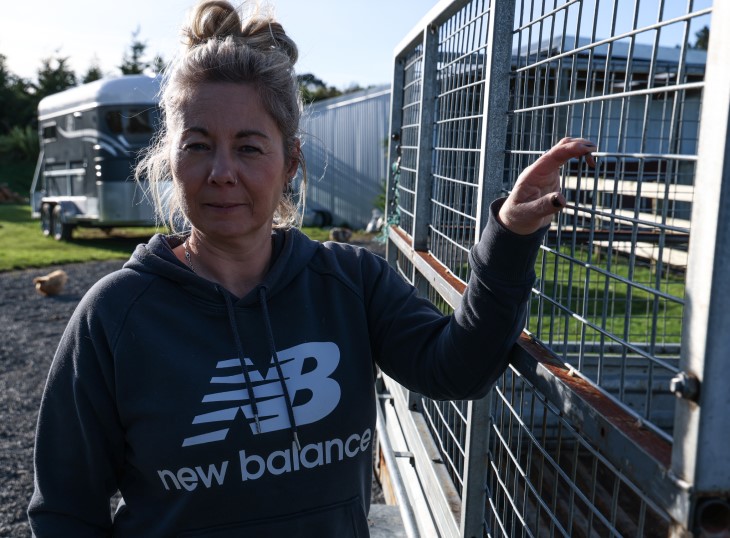
“Oh no, what have I done?”
It was around 2pm on an overcast Autumn Day. Sarah and her dad had been loading a trailer to take the final items to their new property near Warkworth.
“I remember thinking ‘I can’t wait to get home for a beer and some lunch’,” she says.
As they pulled out of the drive, Sarah remembered the feijoa plants she had recently planted.
“Dad said ‘just leave them, you are tired, let’s go’. I was adamant we had to get them because that’s just my nature.”
Rather than opening the back gate to the trailer, Sarah jumped up onto the wheel arch to throw the feijoa plants on top of the pile.
“As I jumped down, my wedding ring got caught in the cage on top of the trailer,” she says.
Sarah felt an almighty yank and then intense pressure on her finger.
“I looked down and said ‘Oh no, what have I done?’.
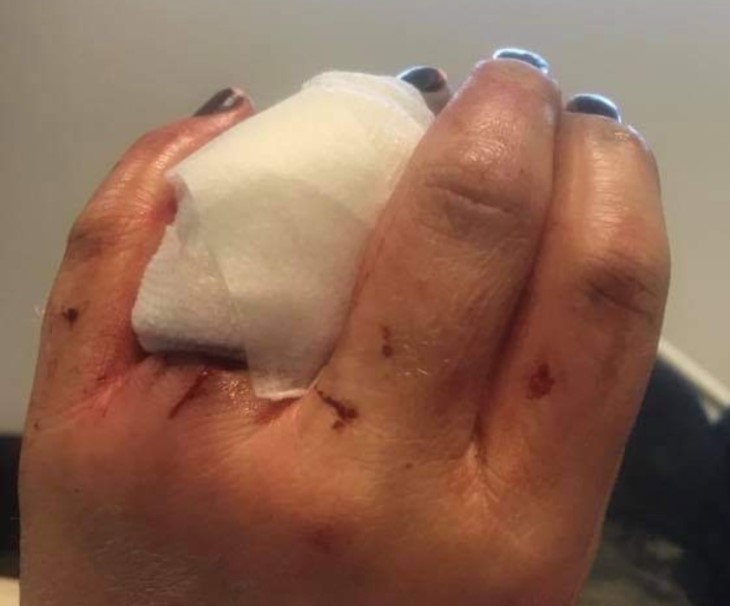
Sarah realised she had degloved her wedding ring finger from the first to the second knuckle. She was in a state of shock.
“All I could see was white, from the bone being exposed with all of the skin taken off.
“My first instinct was to grab it and put pressure on it to stop the bleeding, but it didn’t bleed.”
She calmly said to her dad ‘I’ve hurt my finger, can you take me to A&E please?’”
“He didn’t believe me. “Rubbish, let me have a look.” He took one look and he said ‘Right, let’s go’.”
They drove to the Warkworth township and Sarah’s finger started to throb. She was in agony.
Soon after arriving at A&E they ring blocked her finger to numb the pain.
Sarah is not alone.
In 2021 there were more than 21,000 DIY injury claims accepted by ACC.
Since 2017, 326 New Zealanders have had an amputation / enucleation as a result of a DIY injury.
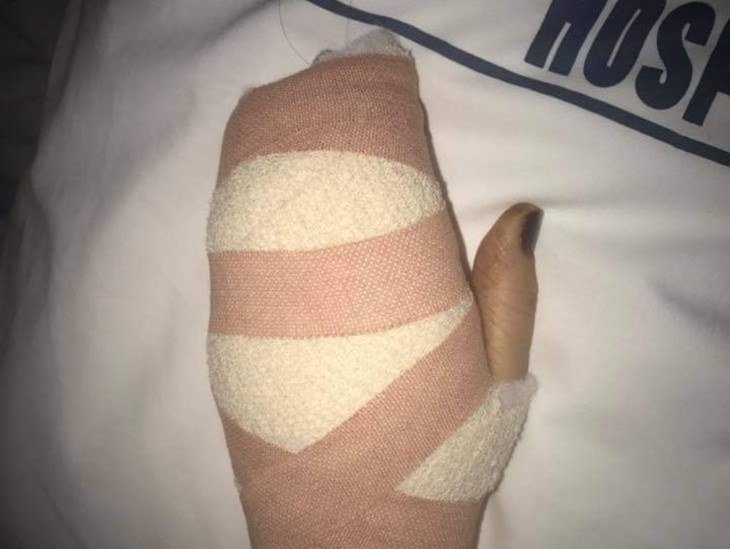
“I was lucky to survive”
Sarah arrived at a busy Middlemore Hospital at 7pm and went into surgery around midnight.
She was told her finger would never look the same, but they tried to save it.
“I was leaning on the doctor’s advice,” says Sarah. “It was a pretty stressful time.”
The surgeon attempted to keep her finger by taking some veins from her foot and a skin-graft from her forearm. That was designed to wrap around the wound.
Following the intricate surgery, the medical team were checking her finger every hour for blood-flow and temperature.
She was rushed back into surgery for a second time after the first attempt failed.
After the first surgery of around five hours, Sarah was back in theatre for another eight hours.
“They worked exceptionally hard to save my finger. And they really thought it was going to work.”
Sarah is prone to low blood pressure. She was told that she had an episode during both surgeries and the doctors had to complete a blood transfusion.
During her recovery there were further complications. Sarah had a pick line into her heart and a whole lot of little bubbles had formed in the line that fed into her heart.
“The nurse came in and she panicked. She turned everything off. Apparently if a big enough bubble had got into my heart, it could have killed me.”
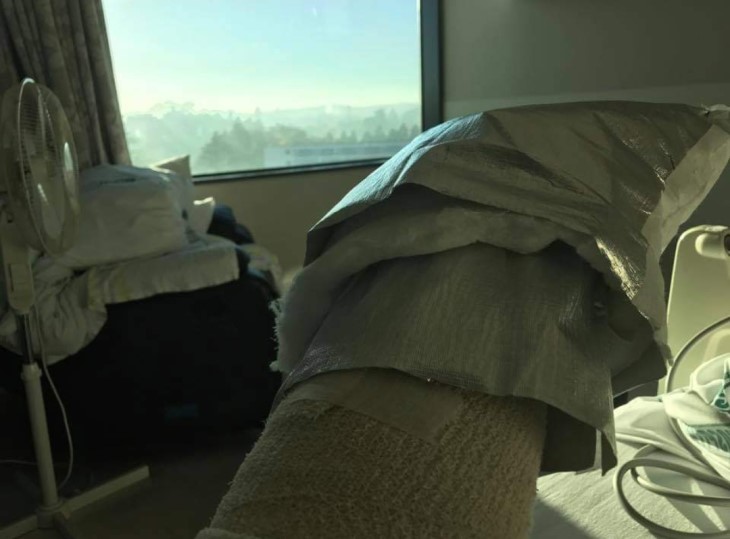
They waited to see if her new finger would survive.
The doctors needed to get Sarah off her heparin drip and start weaning the leeches off so the blood could start pumping on its own back to the finger. But it didn’t take.
“My finger went blue,” she says. “That is when they said: ‘We’ve done all we can.”
The pain following her finger being amputated, and her stitches being removed, was excruciating.
Starting again
When the doctor advised he would amputate Sarah’s finger, her biggest emotion was relief.
“I desperately wanted to go home,” she says.
That period was a real challenge for her husband Dave. He was managing a new role, their daughter Katy who was eight at the time, and a busy house and farm.
There was a huge amount of pressure on the family.
“We had only just moved into our new place two weeks ago. I just wanted to get home and help.
“Over time, the grief of what I had been through hit me.”
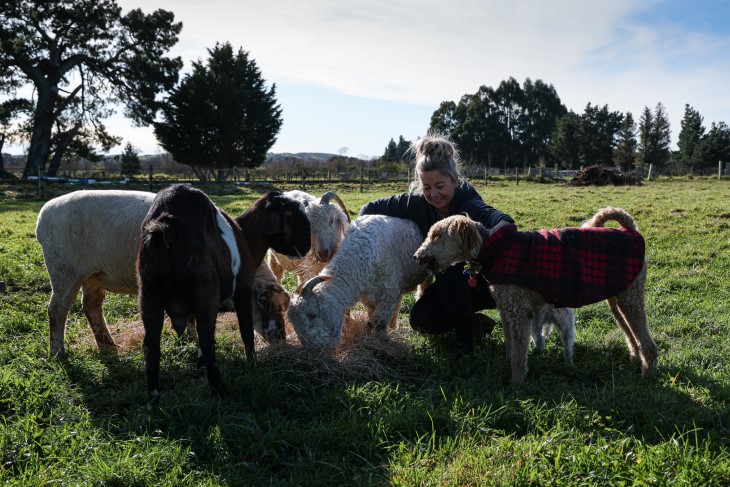
Sarah says going home was a challenging step. She was in pain and adjusting to home life in a cast.
She had to keep her hand up to assist the blood-flow. She had to sleep with her hand on cushions. And she was still exhausted from three general anaesthetics.
“I go at life at 110 percent so sitting around watching the world go by was pretty challenging for me. It was a long journey.”
Sarah realised she didn’t have the grip and strength in left hand anymore. She will never regain that.
“ACC gave me compensation for that because my hand will never be the same again,” she says.
“It does annoy me. My little finger aches and my knuckle swells, but it doesn’t stop me.”
“Without ACC I would have felt very alone”
Like at home, Sarah played a central role as Office Manager for a local business in Warkworth.
“They were desperate for me to come back, and they were putting a lot of pressure on,” she says.
Her ACC Case Manager protected Sarah’s wellbeing.
“He was brilliant at setting their expectations,” she says. “I remember him saying ‘You need this time to recover, work can wait. The most important thing was giving my hand a chance to heal and getting well again. I really appreciated that.”
Sarah says she could not have got through her recovery without ACC.
They covered the surgeries, medical appointments, physio, hand therapy, financial support to her employers and some kitchen tools to help with making meals.
“The financial support ACC gave me was awesome. It was so important that I wasn’t out of pocket and that life carried on for the family.”
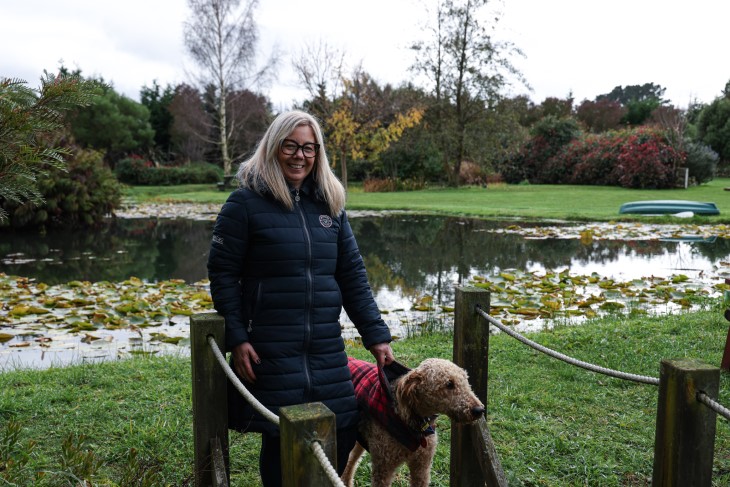
Sarah was in a cast for a number of weeks, so ACC provided her with a range of tools for the kitchen.
“I think as New Zealanders we need to recognise that we are incredibly lucky to have a system like ACC. Accidents happen and it is so nice to have that support and assistance to get back to normal life. Their support gave me the chance to just focus on my recovery and get well again.”
A new perspective on life
Sarah says her hand injury had a profound impact on her.
Her family now lives on a farm in Carterton. Sarah remembers her accident every day.
“Looking back, I was always rushing. I was working 40 hours a week, managing a farm. We were moving house, looking after kids and livestock. I was trying to be all things to all people which resulted in me having the accident.
“I wasn’t thinking clearly. I needed to slow down.”
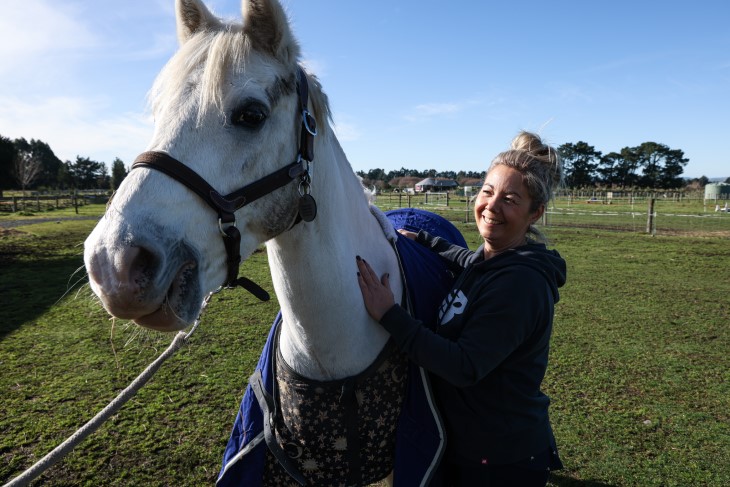
She has simple advice for anyone working around their house or doing DIY.
“If you’re working outside and you are wearing rings, take them off or if you can’t then wear gloves. It’s a huge risk to your hands,” she says.
“Slow down. Everyone thinks we have to go at life at a 100 miles per hour and yes, we always have so much to do. But life is not the destination, it is the journey. You have got to enjoy it.”
What is Preventable?
'Have a hmmm' is a constructive wero (challenge) to Aotearoa: Take action to avoid injury and keep yourself, your whānau, friends and community safe and well.
Injury can have life-changing impacts – for those who are injured, their whānau and society. Around 90 percent of injuries are not random events. They're predictable and therefore preventable.
Yet, we see 5,000 injury claims per day. That's around two million claims a year.
We're starting by asking New Zealanders to do something easy: take a moment, 'Have a hmmm' and think of others before acting.




